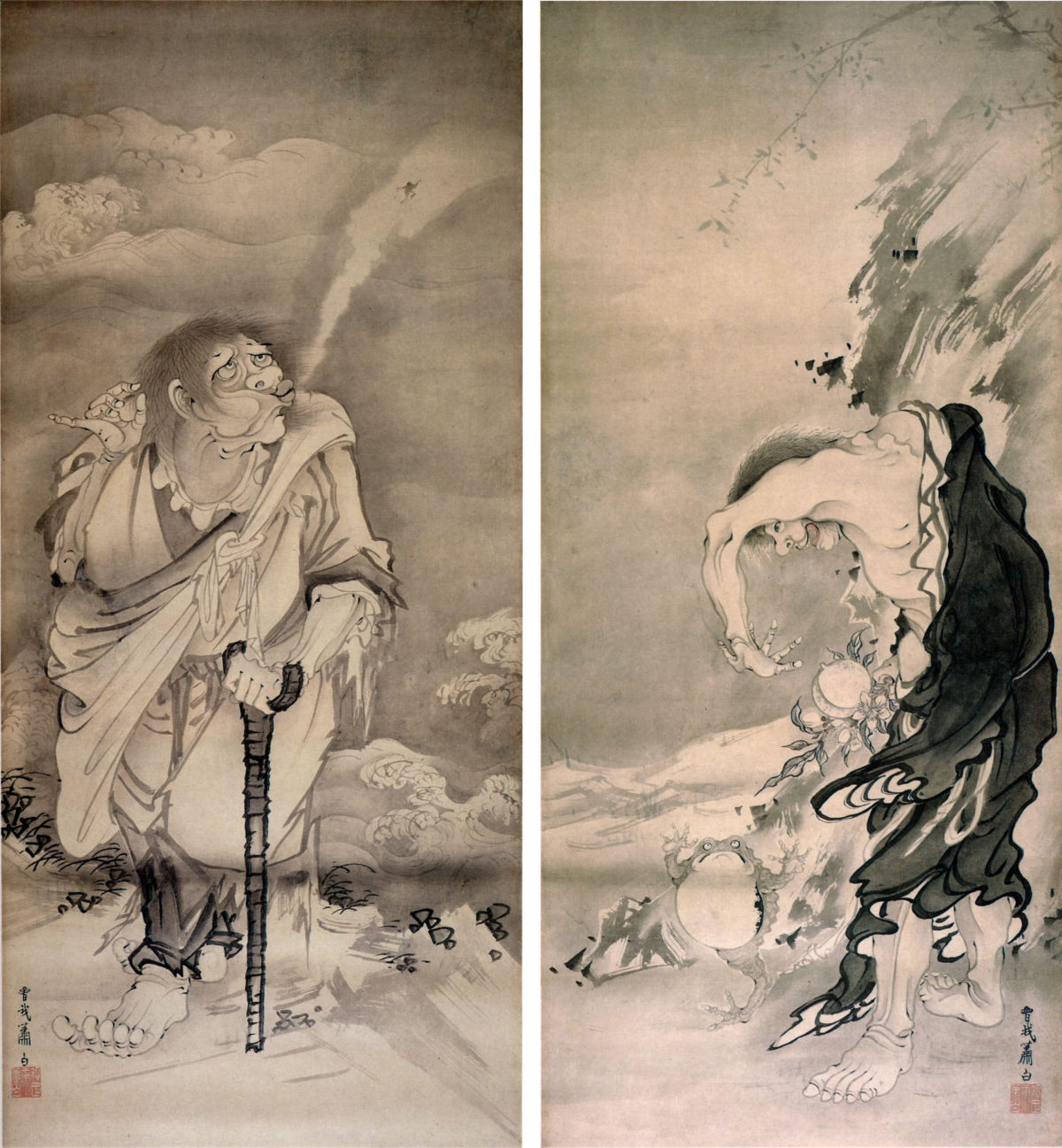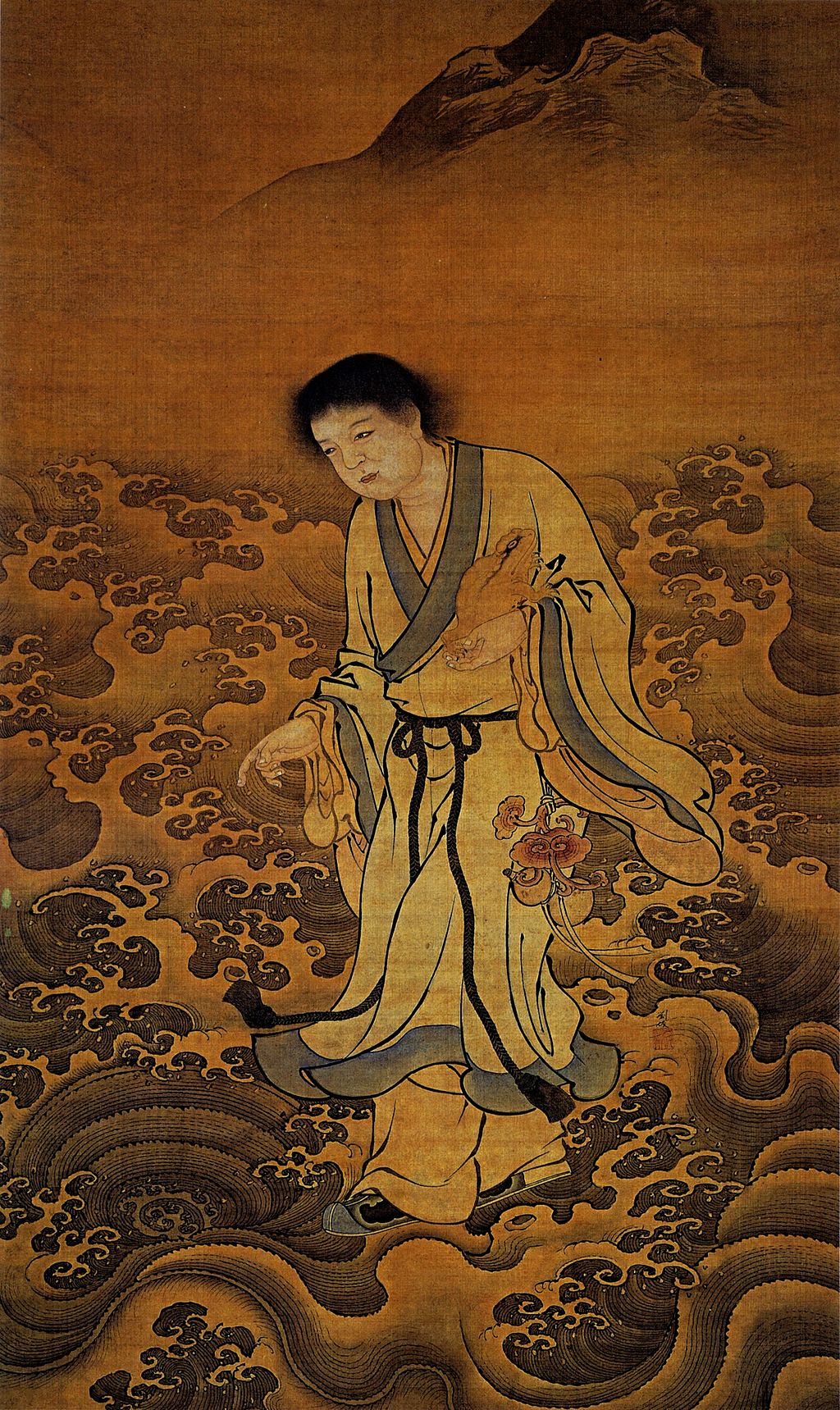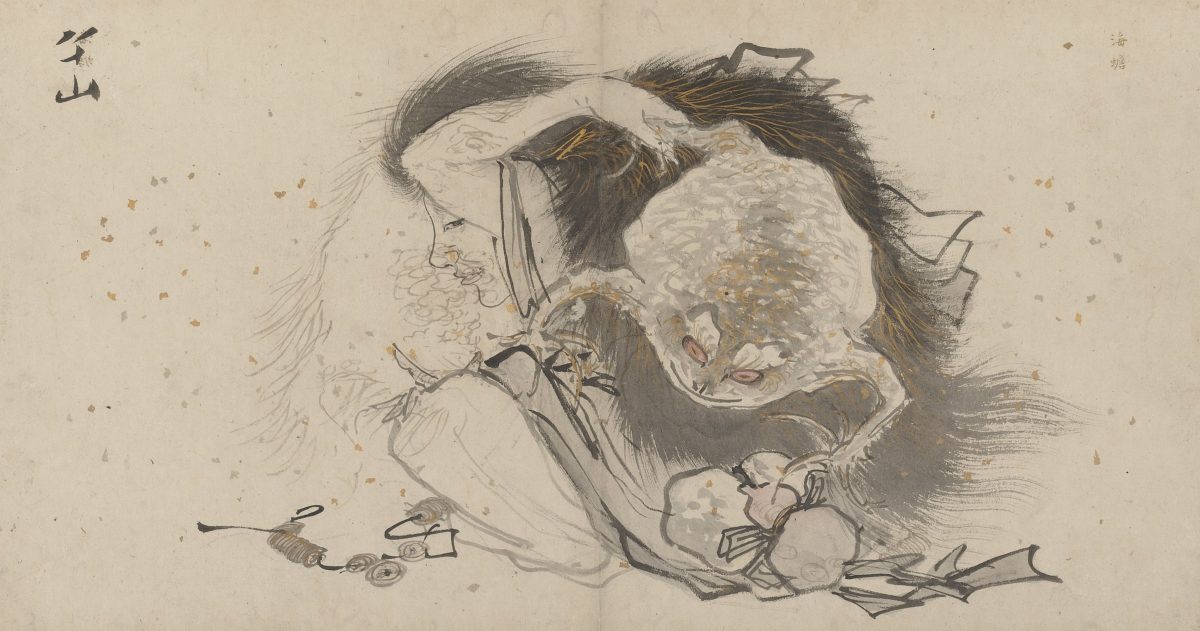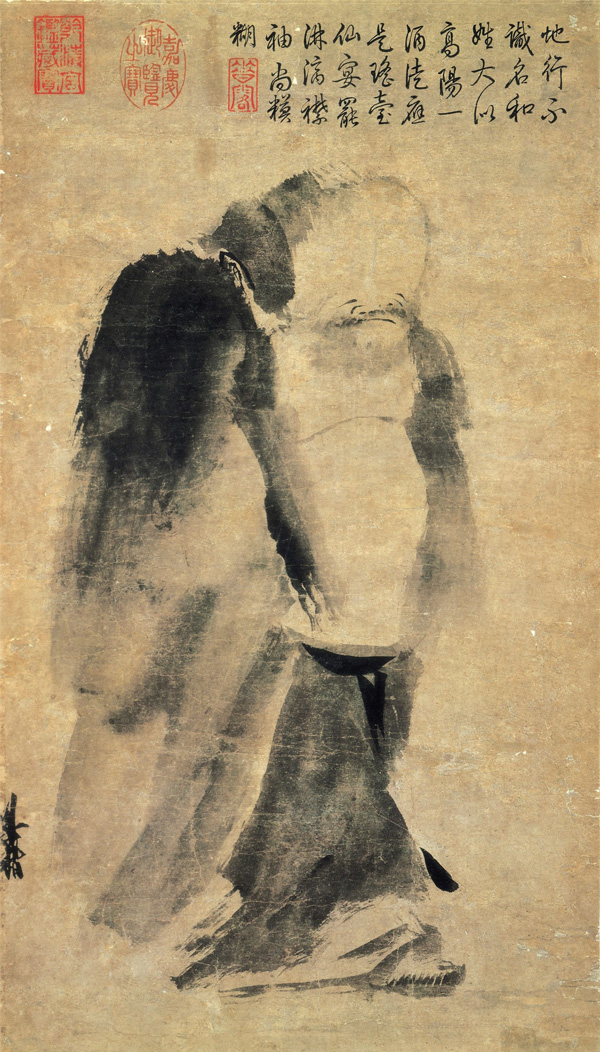
In the last few years, I’ve been spending my free time learning about the esoteric side of Taoism known as Neidan or “internal alchemy.” This is a set of mysterious techniques aimed toward becoming an immortal being, a term which can be interpreted, like many religious ideas, both metaphorically and literally. The practice, which continues to this day, involves radical alternations to diet, sex, exercise, meditation, and every other basic element of life.
I remain an amateur enthusiast in this vast field of ancient knowledge but the two thinkers who have greatly helped me in my learning are Eva Wong, a taoist practitioner and translator, and Livia Kohn, a scholar and professor at Boston University. Both have produced many remarkable Taoist texts in their careers, archiving and translating rare works, opening the Western mind to this little-known branch of Taoist thought. Kohn’s book, The Taoist Experience had a particularly strong influence on me, and I have since followed the numerous studies she continues to publish through Three Pines press.
On the path for deeper understanding, I reached out to both of these women for an interview. Wong’s “correspondence manager” responded promptly by saying “Eva follows the hermit tradition of Taoism that does not publicize an individual in media presentations,” which was perhaps the greatest interview rejection I have yet to receive. Kohn, on the other hand, is a public figure, and often speaks about Taoism, so we arranged a time. We spoke for two hours, during which I asked her the questions that could be answered and avoided the ones that I wanted to remain unknown.
—Ross Simonini
THE BELIEVER: What is the sage?
LIVIA KOHN: Well, there are three different figures in Taoist literature, and the terms are used in various ways. One of them is the sage that you already referred to, but another term is called the perfected, which sometimes is translated to the true man or the genuine person. And the third one is the immortal. The perfected or true person is the most fundamental of the three in the sense that you could really just think of that as an accomplished mystic. So if you know some of the Zen masters, like every day is a good day, wherever I am I am blessed, I am constantly connected to Tao, and there’s no big personality issues, and there’s no major emotions that these people have ups and downs from. And there’s no planning or ambition or competition or just like a very enlightened, accomplished mystic kind of figure.
And then when you go on from there, the sage is the person who has all of that but who is also a political figure. A sage is a person who plays a role in society, in culture, in government. The perfected is a person who stays away from government, doesn’t want anything to do like a recluse or at least like a private person who says whatever goes on in society, I don’t want anything to do with it. There’s the sage, especially in the Tao Te Ching which is the classical literature place for that. The sage really is the ruler and a high government figure. And it is the sage that has these mystical qualities and flows along with Tao that changes society and that makes it perfect, makes it ideal and open to this very high level of what the Chinese call Great Peace.

(c. 15th century) painting by Li Jun
And immortals are a different dimension again because they have the mystical qualities, but in addition to that, they have shamanic power. They’re astral travelers. They go to the other world. They communicate with the spirits. They have all kinds of magical abilities so they can multi-locate and they have impact on nature, but they also stay away from society, so they’re not the kind of administrative types. They’re actually the most elusive of all. They live in the mountains and would be very unusual to come across.
BLVR: Are there living examples?
LK: Yes, there’s a book by a guy called Bill Porter. He was an English teacher in Taiwan for many years. He read all these stories, and he wanted to find out if these people were still around. Once China opened in the eighties and you could go to all kinds of places again, he made it his business to find them, and did. He hiked into the mountains and asked people who lived in monasteries, villages, and in isolated places, “Are there any recluses?” and some would say, “Yeah yeah, there is so and so, and you just have to climb there.” And so for many weeks and months, he climbed all over the place and found quite a few of these people who were isolated from society. Some of them were very eccentric. Some were eating only walnuts. One of them—it was the late eighties—had never even heard of Mao Zedong. He was so far separated from society, which was like, wow. We have a document of all this, and it’s called The Road To Heaven. It’s a really nice book.
And then we have people who are very high level Taoist masters. They rise through the ranks of the Taoist institution, but then they get tired of some of the political problems—administrative issues and such. So they just leave, and become what we call inner-city hermits. They live by themselves and do a lot of self-conservation practices and make some money by teaching calligraphy or doing something so they can survive. Some of these people we know because they’ve agreed to teach, and they’ve agreed to teach westerners.
BLVR: I’ve heard anecdotally that Taoism is growing a bit in popularity in the last few decades.
LK: That’s correct. After the Cultural Revolution, all the destruction, they had, I don’t know, ten temples left. Now there’s almost twenty thousand. I mean the numbers are just unbelievable. Some of the temples are really big, and some are small—somebody’s private property who sponsors the Taoists to live there. There are a lot of younger people who join the movement or religion nowadays. There are even some higher level educational institutions established in the early 2000s where people can train to be government-sponsored, where they can become very high level executives within the religion. Oh yeah. It’s flourishing all right.
BLVR: What do you attribute that to?
LK: Well, you have some religious freedom, not total religious freedom, but you have enough of a government sponsored openness that people can get the permits to rebuild. A lot of land was confiscated and it took a lot of time for the Taoists to go back to the local governments saying, you know, we’d like the land back, and they kept arguing. Eventually they got it back. By now most of it has been returned.

BLVR: So as you see it, Taoism was largely repressed for a period of time, but the Taoists remained. The interest was there, but it couldn’t be made public or funded or supported.
LK: Right, every village in Christianity, Buddhism, Confucianism, popular religion, shamanism, Islam. Every religion was suppressed starting in the 1940s during their major civil war. A lot of stuff was destroyed. And then people don’t really have time to sit and meditate when they have to fight for their survival. From the mid-thirties to the early nineties we’re looking at close to a sixty year hiatus of no religious activity in China.
Once the communists came to power in 1949, they suppressed religion, and then a lot of the temples got confiscated. People had to leave, and then whoever hung on was finally kicked out in the cultural revolution in 1966. By 1966, there were no temples or any places of religious worship left in the country. If there were a temple that had frescoes and paintings inside, they would whitewash over them.
The revolution ended in ’76. It took another ten years for people to finally accept it wasn’t coming back. People were very traumatized. All religions were essentially exterminated for that period. But you still have the knowledge, scriptures that are either hidden away or taken abroad. A lot of Taoist material has been re-imported from Taiwan and from overseas. There are some Taoist scholars who were trained in fairly complicated rituals in Taiwan who went over to mainland China and taught the Taoists what their rituals were.
People have to come back and learn. And then you may have some really older people who just went into hiding, and then they came back. They say they’re coming down from the mountains. So some knowledge survived. Some buildings survived. Culture survived. I’ve seen this. Some of the temples that used to be really big compounds with many different buildings. There was maybe one building left, and it was like all the statues were desecrated or ruined, and the place itself was razed, and the place itself was miserable. And then you know these bits and pieces, they started restoring by the late eighties. And it’s true for everything. The mosques, the churches, and the Buddhist temples––the same story.
BLVR: And the kind of Taoism that has become active again, does this encompass esoteric practices as well?
LK: Yes.
BLVR: Do you practice Taoism?
LK: To a certain degree. To me, a lot of Taoism is energy work. You’re relating to the universe through chi which is vital energy or life force. So you start working the philosophy long enough. I do a lot of Tai Chi and Qigong practice. You sort of see yourself in those forms. I would never live in a house that does not use feng shui, and I arrange my life according to the principles of vital energy. But I don’t do a lot of the ritual things.

BLVR: How do Taoist talismans function? Are they considered art?
LK: Talismans are magical implements. They look like art but they’re not completely art. They’re more like the staff of a cardinal in the Catholic church. It’s a separate sign of power. Holy men and wizards and cardinals all have their staff. The staffs as much as Taoist talismans symbolize the power holy or special people are endowed with. They can certainly be ornate, but they’re not considered art.
A talisman is an amulet that contains the power of a particular deity or a particular divine entity, and that is geared toward a particular process. It may be protection against the monk influence. It may be protection against evil or negative energy. It may be in support of business success. It’s a consecrated holy piece of paper that has sacred writing on it. The writing is special both in content and form, reflecting a more original form of Chinese characters as they would be in heaven. A lot of talismanic writings are originally downloaded in trances by a medium. Of course, now you have a standardized pattern that people know. You know how to do this. They learn this over a number of years, and then they can provide the talismans with specific properties and then you can post these inside your house, or you can roll it up and put it on your body in a little pouch. You can put it on your belt. It’s more of a ritual implement like a protective device. This is a holy thing. It’s not art.
BLVR: How is literature used within Taoism? The same way that the Bible and the Torah are used in western religions? Are texts a source or focus of worship?
LK: No, it’s the same. The holy Taoist scriptures––it’s more like Islam. Islam has the belief that the Koran was originally placed in heaven and then it was just downloaded or transmitted by the Prophet, and that’s the Taoist idea. All holy scriptures are originally in heaven, and then every so often some parts get channeled or downloaded into specific revelations by prophets or by inspired seekers. Beyond that, too, Taoism is like other religions. You don’t just have the Torah and the Bible. You have commentary. You have exercises. You have people like St. Augustine and Ignatius of Loyola, St. Theresa. I mean, a ton of people who have done poetry and exercises and interpretations, and then they also have their own personal vision. They write biographies. You have the saints. You have priests, and monastics, and lay practitioners. Religious materials are multiple and not just one pack.
BLVR: You mentioned “heaven” a minute ago and I hear the celestial plane mentioned a lot in Taoist texts. How do the two ideas relate?
LK: I’d say it’s very similar. You have divine entities hidden above the clouds having a good time.
BLVR: Some of the things you’ve written about, the more extreme practices of consuming a toxic substance such as cinnabar. Do these still go on today?
LK: The answer is yes, but it’s underground. Every so often some scholar somewhere comes across these things and the chemical or operative alchemy that you were talking about, they use cinnabar and mercury, and they refine these things. We don’t have a lot of documentation. But one of my grad students, he was interested in the practice called bigu, which is an extreme practice. It literally means “avoiding grain.” A radical practice, it’s historically described as one of the ways to achieve immortality and become an otherworldly kind of being. People would get to a point of being vegetarian and then eat very little grain. They supplement their diet with some herbal remedies. They do self massages to keep the energy flowing in the body. They also undertake eternal visualizations, a lot of breathing practices, and some physical movement. There’s a whole series of things, but the bottom line is that, after so many weeks or months of this, people no longer need to eat regular food and instead can live on breath. Some people would do it for a week and then they start eating again, a little bit, which is sort of okay. But once you talk about multiple months, it starts to get very strange. So my former student was looking at these historical documents. He also had an undergraduate degree in chemistry, and he was really into theology and nutrition. So he studied this combination of sesame and ginger and whatever else, and what that would do to the body, and how these concoctions can help people keep their strength while they’re refusing food.
Then he went to China. That was about fifteen years ago. He studied in various places at different universities, and he would look at texts and get help with his research. These texts, some of them are quite difficult to read. Then he started going to Taoists and ask if they practice bigu, and they would say, “No no no, we don’t even know what that is. Oh no no.” That went on for quite a while. Eventually he started to go to smaller temples, and he started to make friends, and people would begin to trust him. Then one of the guys takes him aside and, “By the way, I’ve done this.” And then he started to tell him his experience. He introduced him to another guy and another guy and to another guy. And so it turns out it’s common. Some people will really have done it for very vast, longer periods. It’s still around, but it takes a lot of effort to learn about.
BLVR: What is ecstatic sleep?
LK: That’s a fairly advanced form of internal alchemy where people refine their internal energies to create a spirit entity. At some point the spirit entity is able to start traveling, and so the person is just laying there, not moving in this trance and going off to the heavens. And the entity, that’s another one that is being done in the monastery.
BLVR: So a lot of this stuff, which often can read as if it’s a metaphor, is actually quite literal.
LK: Yes. Assume whatever you read is real. You may start thinking, oh, this is fictional, this is crazy. However, once you get over that you say, wait a second. Maybe there is something here that needs to be taken seriously. Maybe it sounds exaggerated. Yes, it maybe sounds fanciful, but there’s something there. If you look around in this country, you could google shamanic journey and find ten/fifteen websites where people will take you for a fee and train you to go into trance and visit whatever other world there is and meet your spirit guide and connect with various deities.
BLVR: Do you consider Taoism dogmatic?
LK: Not at all. It’s very practical. Everything about Asian religions is very practical. Dogma is utterly irrelevant. They don’t ask you what you believe. They always ask you what you do. And that’s true for all Asian creeds, including Hinduism and Buddhism and Shinto.
Overall, belief matters much less than what you’re doing. On the other hand, what’s also happened in Japan, people interviewed will say, “Oh no, I don’t have religion.” And then you turn around and say, “Wait a second, that’s a shrine to the ancestors.” And they say, “Oh no, that’s not religion. That’s just what I do.” See what I mean?
BLVR: That’s a nice distinction.
LK: To me a lot of religion has to do with how you divide your time. If you think, here’s Christmas and here’s Lent and here’s Easter and here’s Pentecost and Mary’s ascension, then it’s like the year is how you structure your thinking. That’s your religion. If you’re Jewish, Rosh Hoshanah is coming up. Then there’s Yom Kippur. All these different festivals. That’s what punctuates your year. And that’s what happens in these Asian places. If you’re like a Buddhist, then there’s all these various Buddhist festivals that you’re attending to. That’s the way traditionally people would go, “Oh yeah it’s so many weeks before or after Easter.” They wouldn’t so much focus on the beliefs associated with these events.
BLVR: When people talk about Taoism in China, it’s often placed in contrast to Confucianism, as if the two are at odds. Is this true to how you think it is played out?
LK: Yes, to a certain degree. The Confucians have a tendency to focus on society and on human relationships, and they believe if you make rules and if you systematically train people in ethical behavior and basic virtues then you can create this very nice society. It’s well organized and clearly rigid but also very society-focused kind of way of doing things. It’s everywhere. It pervades the culture. They don’t acknowledge it as such but the relationships are still very very important and the way you cultivate and deal with relationships is part of the work of Chinese culture.
Taoism deals with the creation of the universe. They work more with chi, with energy, and so society is good and fine but it’s secondary to your relationship to nature and the greater universe and the energies that are flowing around. It’s a different way of approaching life, and it’s not totally contradictory. You can be very socially aware and also have a relationship and also honor the changing of the people, right? So a lot of Taoists and Taoist monasteries have mastered codes and ethical regulations that very closely echo the Confucian conduct code, code of conduct. They all engage in society on a Confucian level, but you have a tendency that Confucians tend to be more limited, like if you have a relationship you have to act a particular way, whereas Taoism, you may be the senior here but it might be good to step back and let the junior person do more because that’s the way the energy flows.




